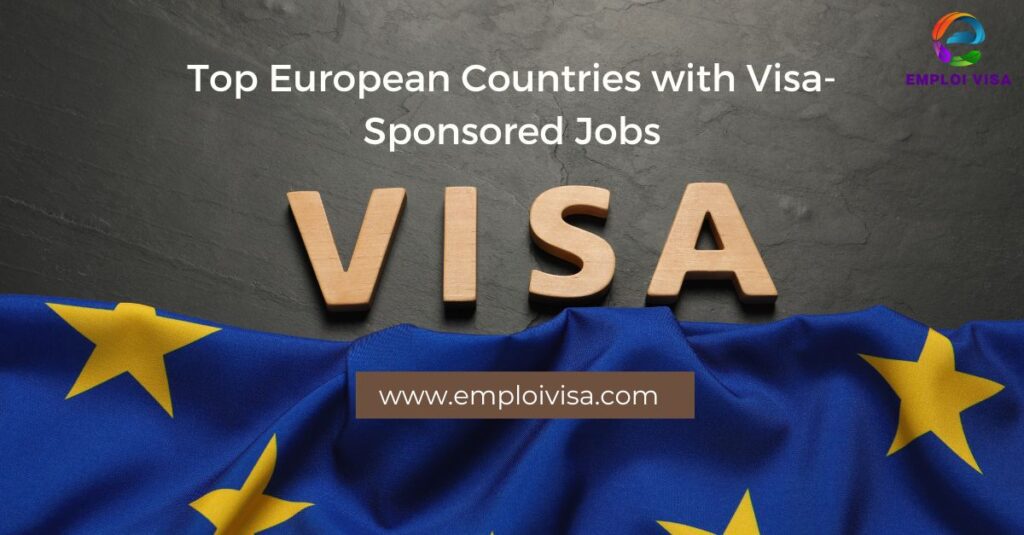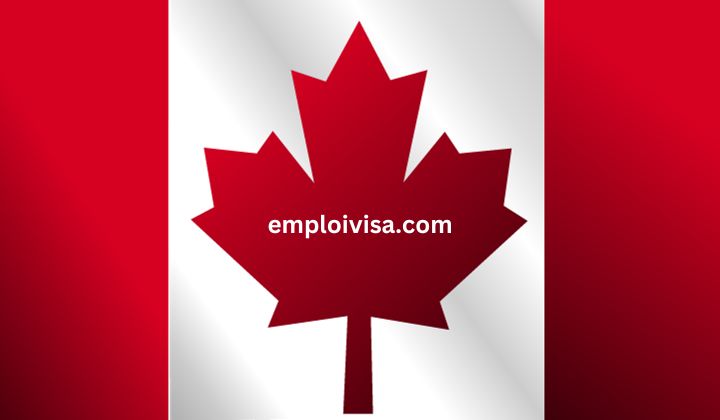
Exploring the job market in Europe, many international professionals and expatriates are interested in visa-sponsored jobs. These visas make it easier to find work abroad and open up many career paths. This article will show you the top European countries for job opportunities with employer-sponsored visas. It will guide you through the exciting world of work visas in Europe.
Key Takeaways
- Discover the leading European nations that provide visa-sponsored job opportunities for foreign workers.
- Understand the concept of visa sponsorship and the various work permit options available across Europe.
- Explore in-demand industries and salary considerations for visa-sponsored positions in Europe.
- Gain insights into the application process and requirements for obtaining employer-backed visas in Europe.
- Leverage this guide to identify the best fit for your international career aspirations within the European job market.
Understanding Visa-Sponsored Employment in Europe
Exploring employment and immigration in Europe can be tough. It’s key to grasp visa sponsorship. This concept helps people get into the European job market.
What is Visa Sponsorship?
Visa sponsorship means an employer in Europe gets a work permit or visa for a foreign worker. This lets the worker legally work there. The employer promises to follow EU work permits and immigration rules.
Benefits of Employer-Sponsored Visas
- Streamlined immigration process for the employee
- Increased access to the labor market in Europe
- Opportunity to work for a reputable European employer
- Potential for long-term career growth and development
Types of Work Permits in Europe
Europe has many work permit types for foreign workers. Each has its own rules and perks. Here are a few:
- EU Blue Card: A special permit for skilled workers. It offers good job and residency chances in the EU.
- National Visa Schemes: Work permits made for each country. They fit the local job market and employer needs.
- Intra-Company Transfers: Permits for employees moving between European branches of big companies.
Knowing about these work permits is vital. It helps employers and employees understand EU immigration rules. This way, they can make the most of visa-sponsored jobs in Europe.

Countries that offer visa-sponsored job opportunities for foreigners in Europe
The EU job market is booming, drawing skilled workers from all over. Countries in Europe are actively looking for top talent. They offer visa sponsorship programs to make it easier for international professionals to find jobs. This section looks at the countries leading in international recruitment and talent acquisition.
Top Destinations for Visa-Sponsored Jobs
- Germany: Known for its strong engineering and tech sectors, Germany offers the sought-after EU Blue Card to attract skilled foreign workers.
- Netherlands: The Netherlands has emerged as a hub for innovation, welcoming foreign professionals with its Highly Skilled Migrant visa program.
- Sweden: Sweden’s Work Permit system provides opportunities for overseas talent, particularly in fields like IT, healthcare, and research.
- France: France’s Talent Passport visa caters to a range of skilled workers, from entrepreneurs to scientists and engineers.
- Spain: Spain’s Residence Permit for Highly Qualified Professionals aims to draw international talent to its thriving industries.
| Country | Visa Type | Key Industries |
|---|---|---|
| Germany | EU Blue Card | Engineering, Technology, Manufacturing |
| Netherlands | Highly Skilled Migrant | Innovation, Technology, Research |
| Sweden | Work Permit | IT, Healthcare, Research |
| France | Talent Passport | Entrepreneurship, Science, Engineering |
| Spain | Residence Permit for Highly Qualified Professionals | Various Skilled Professions |
These European countries are leading the way in the global EU job market. They offer visa-sponsored jobs for skilled international professionals. By knowing the different work permit options, job seekers can find the best places to grow their careers in skilled immigration and talent acquisition.

Germany: The Hub of Engineering and Tech Jobs
Germany is a top choice for foreign professionals looking for great jobs in engineering and tech. Its strong economy, growing industries, and forward-thinking policies draw skilled workers from everywhere.
Blue Card System in Germany
The EU Blue Card program is a big reason for the rise in international workers. It helps highly skilled non-EU citizens find jobs in Germany. With a Blue Card, you can live and work in Germany for up to four years, with chances to renew.
In-Demand Industries
The job market in Germany is especially lively in fields like car engineering, IT, biotech, and green energy. These areas need skilled people to keep growing and innovating. So, Germany is a great place for those with STEM careers skills.
Salary Requirements and Benefits
To get a EU Blue Card, you need to earn at least 56,400 euros a year (as of 2023). But, salaries for visa-sponsored jobs in Germany can be much higher. They can go from 60,000 to 100,000 euros or more, based on your skills and the job. Plus, Blue Card holders get to enjoy Germany’s social welfare system and can bring their families along.
Germany’s booming German job market and its welcoming skilled migration policies make it a top spot for international talent. They’re looking for rewarding careers in engineering, tech, and other key areas.
Conclusion
The European job market is full of chances for those looking for European career opportunities, global mobility, and international experience. Places like Germany’s tech hubs and the diverse industries across Europe offer great careers and personal growth. Visa-sponsored jobs are a key to these opportunities.
Knowing about work permits and employer-sponsored visas helps job seekers feel confident in the international job market. Whether you’re into engineering, tech, or other fields, Europe is a great place for your next career step.
When you start looking for European career opportunities, do your homework. Find out which industries are in demand, learn about visa needs, and show off your skills and experiences. With hard work and a global outlook, you can find a rewarding job and enjoy Europe’s rich culture.
FAQ
What is visa sponsorship?
Visa sponsorship is when an employer helps a foreign worker get a visa. This lets them legally work in the host country.
What are the benefits of employer-sponsored visas?
Employer-sponsored visas have many perks. They make immigration easier, open up the job market, and can lead to permanent residency or citizenship.
What types of work permits are available in Europe?
Europe has different work permits. You can find the EU Blue Card, national visas, and special permits for skilled workers, intra-company transfers, and seasonal jobs.
Which European countries offer visa-sponsored job opportunities for foreigners?
Countries like Germany, the Netherlands, France, and Spain are looking for foreign talent. They offer visa jobs in fields like engineering, tech, healthcare, and more.
What is the Blue Card system in Germany?
The EU Blue Card lets skilled non-EU citizens work and live in Germany. It has easy application processes, high salary needs, and paths to permanent residency.
What are the in-demand industries for visa-sponsored jobs in Germany?
Germany needs experts in engineering and tech. They’re looking for people in software development, IT, automation, and advanced manufacturing.
What are the salary requirements and benefits for visa-sponsored employees in Germany?
Visa workers in Germany need to earn at least €56,400 a year. But they get great benefits like health care, social security, and chances for career growth.







My name is Ebrima Touray I am a Gambia.
I am a fresh graduate from the Gambia college. And I am eager to gain international work experience. I would appreciate any guidance you can provide. Looking forward to hear from your response soon. Best regards. Ebrima Touray
I am Ildefonso Japones experience overseas Filipino Worker before in Korea and Japan as a Production Staff and later on in Japan become a Production Supervisor. I am a graduate of Bachelor in Science in Civil Engineering.I finish also my Doctorate Degree in Theology.I am a skilled welder N C 2 SMAW.